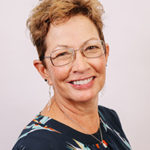

Science Success for English Learners – Podcast Episode 93 | Classnotes Podcast 93
Podcast: Play in new window | Download
Classnotes Podcast (August 26, 2011) At a time when we need more students to excel in science, technology, engineering and math (STEM) areas, we are not seeing the dramatic improvement we need in achievement, particularly among English learners. While some are quick to conclude a lack of interest or motivation on the part of the students themselves, Veronica Betancourt, M.A., and Kristin Grayson, M.Ed., IDRA education associates, take a different view. For example, they have witnessed great improvements in science skills among secondary English learners by working with teachers to use a set of seven strategies for delivering instruction differently. In this episode, Veronica and Kristin give an overview of these seven strategies. A more detailed look at each will follow in the coming months. Veronica and Kristin are interviewed by Bradley Scott, Ph.D., director of the IDRA South Central Collaborative for Equity.
Show length: 14:15
Send comments to podcast@idra.org.
Sign up for Classnotes e-mail alerts.
Resources
Differentiating Science Instruction using Language Proficiency Standards
By Veronica Betancourt , M.A., and Kristin Grayson , M.Ed., IDRA Newsletter
http://www.idra.org/resource-center/differentiating-science-instruction/
Aligning for Success: Using Contextual Analysis in Science Professional Development
By Kristin Grayson , M.Ed., IDRA Newsletter
http://www.idra.org/resource-center/aligning-school-based-factors-for-student-success/
Breaking the Bonds of Boredom in Science and Math
By Veronica Betancourt , M.A., IDRA Newsletter
http://www.idra.org/resource-center/breaking-the-bonds-of-boredom/
Releasing the Mathematician and Scientist within Students
By Kathy Brown and Veronica Betancourt , M.A., IDRA Newsletter
http://www.idra.org/resource-center/releasing-the-mathematician/
You Can’t Win if You Don’t Get to Play – Effectively Engaging All English Language Learners
By Adela Solís, Ph.D., and Kristin Grayson , M.Ed., IDRA Newsletter
http://www.idra.org/resource-center/you-can-not-win/
Education of English Language Learners in U.S. and Texas Schools – Where We Are, What We Have Learned and Where We Need to Go from Here – A 2009
By Albert Cortez, Ph.D., and Abelardo Villarreal , Ph.D.
http://www.idra.org/publications/education-english-language-learners-u-s-texas-schools-learned-need-go-2009-update/
Science Smart!
IDRA’s professional development that provides teachers with scientifically-based strategies to teach initiative scientific concepts, critical-thinking skills, problem-solving abilities and processes.
http://www.idra.org/Services/Science_Smart!_Secondary_Training/
IDRA South Central Collaborative for Equity
The federally-funded equity assistance center that serves schools and districts in Arkansas , Louisiana , New Mexico , Oklahoma and Texas.
http://www.idra.org/South_Central_Collaborative_for_Equity/
Your feedback
We welcome your comments and questions to the podcast. Send an e-mail to podcast@idra.org.
Listen to every episode!
To ensure you don’t miss a single episode of IDRA Classnotes, subscribe to the podcast in iTunes, (download iTunes free if you don’t have it) or sign up to receive an e-mail alert as soon as a new show is published.



